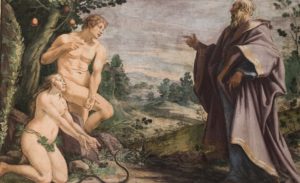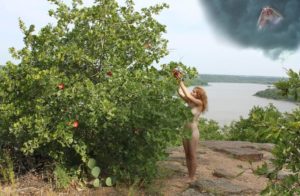What is the meaning of life?
What is the nature of reality? What does it mean to be human and how do we fit into the greater scheme of things? Questions such as these have long since occupied the realm of religion and philosophy, which have done a great deal to help put society on the right track towards big-picture thinking, but while man has struggled with the purpose and significance of human existence, mankind has gained a broad, collective understanding of the universe, its systems, and themes that drive its being. Like pieces of a puzzle, we can assemble scientific observations from multiple fields of study of a universe inundated with meaningful evidence of its chronology to achieve a transdisciplinary understanding of existence worthy of tackling the most pressing questions of our history. In retrospect, when applied to ancient prophecies and religious beliefs concerning the nature of man, this knowledge unveils the meaning behind the metaphors and bridges the gap between religion and science through the revelation that they are two sides of the same coin, representing an evolution along the continuum of our capability to explain reality through time.
That we can even do such a thing explain reality distinguishes us from all other species to have ever lived on Earth. Pattern recognition, though an innate ability in all animals, is so sophisticated in the human brain that it contains an accurate working model of everything it perceives in the environment, embodying its same mathematical relationships and causal structure. This remarkable intelligence has afforded us the capacity to think conceptually by organizing information from the past and present into abstract mental models which, when projected into the future, guide us in creating new knowledge and new technology. This begins a positive feedback loop as new technology creates a new environment, which allows us to observe and interact with reality in new ways, see new patterns, reorganize information, and create new technology, ad infinitum. We have total mastery over our surroundings. History has shown us time and again that we are limited only by our imaginations: Anything is possible, so long as the laws of physics do not forbid its manifestation.
The appearance of our species marked a new threshold of complexity centralized within our neurobiology and profoundly deviated from the whole of the rest of Earth’s physical constituents. That we are ostensibly distinct from nature in our self-awareness must have plagued early man’s mind in his search for truth. Furthermore, before recorded history, in a time lacking developed language and the scientific reasoning that benefits us today, all-encompassing explanations of reality and human nature was inescapable and necessarily metaphorical.
In effect, without the language to describe existence rationally, existence acquires whatever fantastical properties attributed to it in the mind’s eye. In other words, the quality of our language determines the quality of our thoughts.
Demonstrating an early attempt to justify man’s unparalleled cognitive adaptations, The Fall of Man, an antiquated parable with many modern religious interpretations, associates self-awareness with the loss of innocence in the eyes of God. In the book of Genesis, Adam and Eve lived with God in the Garden of Eden before directly disobeying His warning and eating the fruit of the Tree of Knowledge. Doing so made them aware of their nakedness and God banished them from paradise, denying them access to the Tree of Life and immortality, to live a life of toil through agriculture. Henceforth, we have been doomed to live out the consequences of their original sin by slaving over the land from which we came and to which we return in death.
What The Fall of Man Addresses?
The Fall of Man addresses the mysteries of life with which early humans would naturally have concerned themselves: their origins, their conscious existence, and their mortality. Not surprisingly, we seek explanations to these natural phenomena to this day; however, the difference between today’s explanations and those of early history lies in the degree of sophistication of the language used to create them.
 A low degree of linguistic sophistication will inherently lead to a low degree of scientific rationale; however, this does not mean the stories created thousands of years ago to explain reality were not supported as the truths of their time. The Fall of Man has retained its popularity to the present day for the same reason we currently support the theories of the Big Bang and evolution: They are linguistic manifestations of our ability to explain reality over the course of time.
A low degree of linguistic sophistication will inherently lead to a low degree of scientific rationale; however, this does not mean the stories created thousands of years ago to explain reality were not supported as the truths of their time. The Fall of Man has retained its popularity to the present day for the same reason we currently support the theories of the Big Bang and evolution: They are linguistic manifestations of our ability to explain reality over the course of time.
The more time we spend creating new technology to aid our scientific observations, the more accurate our mental models of the universe become. Therefore, our continually evolving knowledge necessarily shapes the way we use language to tell the same story of creation. The Fall of Man naturally contains certain logical fallacies evidenced by its metaphorical expression of objective existence.
Conscious-awareness and humanity’s dominion over the environment is inextricably linked, though not necessarily causally related.
Just as there are degrees of sophistication in language, there are degrees of sophistication in consciousness. The animals of the world are conscious, but not to the degree which would allow them exponentially manipulative control of their surroundings. As humans, we exhibit such control not due to our simply being conscious, but through our highly evolved neurobiology from which the state of conscious-awareness necessary for that control emerges. Before recorded history, it must have been tempting to connect the most mysterious concepts known to man in a story that explains all of them in the same context. The Fall of Man is especially interesting because it attempts to afford the lack of evolutionary knowledge necessary to objectively contemplate such ideas.
The human transition from a lower state of consciousness to that of self-awareness
Eating the fruit of the Tree of Knowledge symbolizes the human transition from a lower state of consciousness to that of self-awareness which, according to the story, directly led to agriculture, the rising technology, and all of our otherworldly “problems” that now impede our return to God’s grace. Ironically, through some twisted form of paradoxical necessity, that which allows this story to even exist is proof that it simply cannot be true; meaning, the same consciousness that allows us to change our environment allows us to create stories about our environment. For this reason, the creators of the story of the Fall of Man utilized environmentally metaphorical imagery in an attempt to explain the very thing that allows them to explain anything in the first place.
 If the Fall of Man had literally occurred, the knowledge necessary to reconstruct the account would have become instantaneously unattainable as a result of the events of the story. Therefore, regardless of the genuine evolutionary connections among consciousness, human nature, and the physical environment, the causal relationships attributed to them in the Fall of Man are entirely arbitrary. Needless to say, the story’s creators deserve credit as being among the first humans to record their recognition of the human species’ remarkable cognitive adaptations.
If the Fall of Man had literally occurred, the knowledge necessary to reconstruct the account would have become instantaneously unattainable as a result of the events of the story. Therefore, regardless of the genuine evolutionary connections among consciousness, human nature, and the physical environment, the causal relationships attributed to them in the Fall of Man are entirely arbitrary. Needless to say, the story’s creators deserve credit as being among the first humans to record their recognition of the human species’ remarkable cognitive adaptations.
Regardless of the actual reasons why our cognitive evolution led to our control over the environment, the creators of the Fall of Man at least understood that the two are interconnected; however, lacking an understanding of the causal relationship between the evolution of our neurobiology and self-awareness caused that gap in their knowledge to manifest in the form of an all-knowing deity. To those that heard this story, it would make sense to believe that eating from the Tree of Knowledge provided humans the same capability to do God’s work by shaping nature as they saw fit, much like God shaped His believers in His image. Adam and Eve’s disobedience to God’s warning and their ensuing banishment from the Garden of Eden metaphorically embodies the special relationship we share with the environment through our heightened state of consciousness. We are not “banished” from God’s paradise simply because of our ability to manipulate and control it; however, it seems as though we become separate from our environment when we choose to exploit nature’s gift to change it. We figuratively eat from the Tree of Knowledge whenever we choose to believe we are separate from nature. Being able to think of ourselves as existing outside the reality our minds construct is to think with the mind of a God who exists outside His creation.
God symbolizes everything which we do not understand
Being omniscient, God symbolizes everything which we do not understand, yet will obtain as knowledge at some point in the future when we “eat the fruit,” or make the necessary observations which will allow us to gain a new understanding of the world around us. So long as humanity continues to evolve its ability to store and process all the available data of the universe, it will progressively acquire more and more god-like traits. In a comprehensible universe, what could possibly prevent us from doing anything not forbidden by the laws of physics other than knowing how? Moreover, our understanding of the laws of physics allows occurring continually changes. Therefore, a sufficient enough understanding of the laws of physics that mandate an event’s possibility is all that is necessary for us to control its occurrence once we possess the resources to perform the task. As our knowledge increases, that which distinguishes us from an omniscient, omnipotent God decreases. To be human is to manifest the immaterial potential of God in physical reality.
Human consciousness is the will of God and humans are the gods of their domain. Ergo, We are the gods of the physical universe, shaping reality through Our will to sustain Our existence forevermore.






